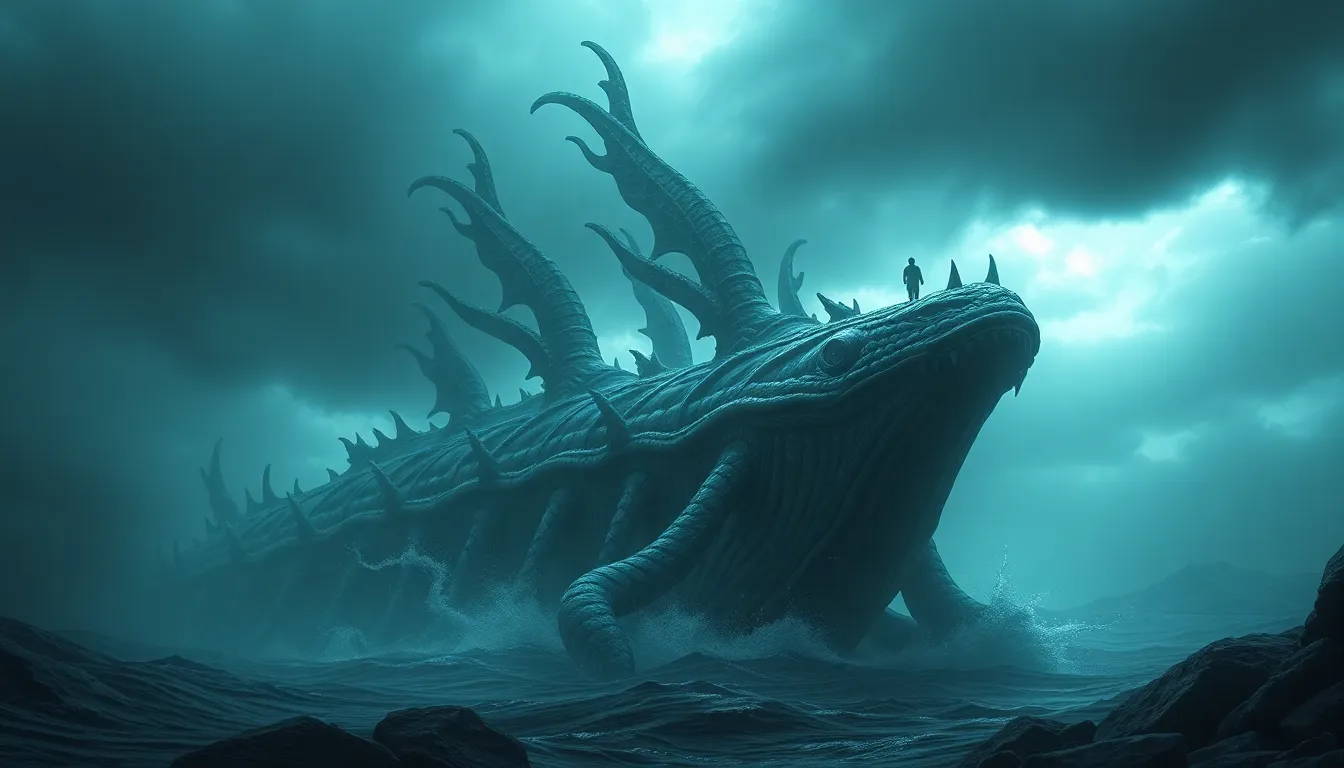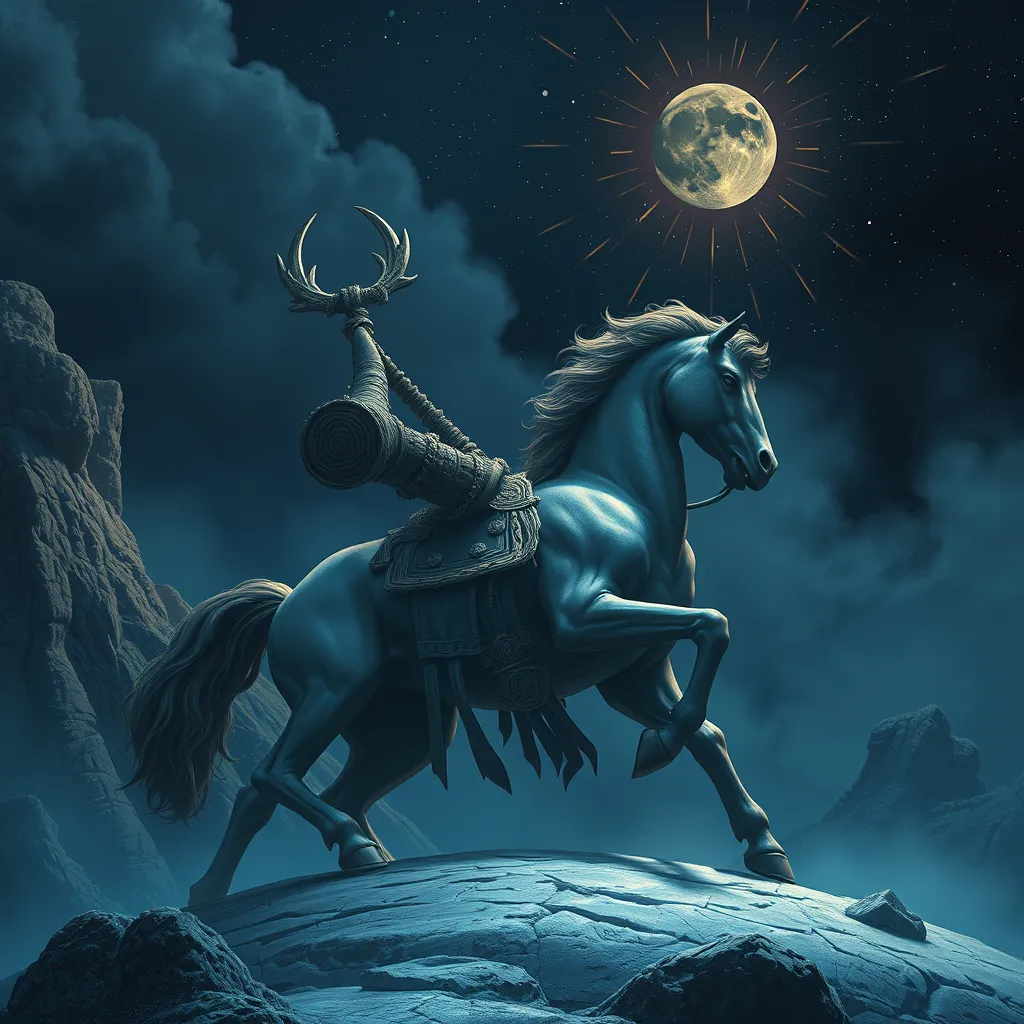The Leviathan’s Lair: Exploring Sea Monsters in Jewish Folklore
I. Introduction to Jewish Folklore and Mythology
Jewish folklore and mythology are rich tapestries woven from centuries of tradition, storytelling, and cultural exchange. Folklore, in this context, refers to the body of myths, legends, and tales that embody the values, beliefs, and experiences of the Jewish people. It serves not only as entertainment but also as a means of understanding the world and one’s place in it.
Within various mythologies around the world, sea monsters often symbolize chaos, danger, and the unknown. They reflect humanity’s fears of the vast, unpredictable oceans and the mysteries that lie beneath. In Jewish folklore, one of the central figures representing these themes is the Leviathan—a colossal creature that has captivated imaginations for generations.
II. The Origins of the Leviathan in Biblical Texts
The origins of the Leviathan can be traced back to the Hebrew Bible, where it is mentioned in several passages, notably in Job 41 and Psalm 104. In these texts, the Leviathan is depicted as a fearsome creature, embodying the raw power of nature.
The symbolism of the Leviathan in religious texts varies. It is often interpreted as a representation of God’s might and the uncontrollable forces of creation. The imagery used to describe the Leviathan—its scales, strength, and fiery breath—serves to evoke awe and reverence.
Comparatively, other cultures have their own sea monsters, such as the Mesopotamian Tiamat and the Greek Typhon. These creatures also embody chaos and serve as adversaries to gods, highlighting a common theme across different mythologies.
III. The Leviathan in Rabbinic Literature
The myth of the Leviathan expands significantly in Rabbinic literature, particularly in the Midrashim and Talmud. Rabbinic texts provide deeper insights into the Leviathan’s character and role within the cosmic order.
One prevalent concept is that of the Leviathan as a creature of chaos, representing the primordial forces that challenge divine order. In various stories, the Leviathan is portrayed as a being that God created to demonstrate His supremacy over chaos and disorder.
Numerous stories and teachings involving the Leviathan illustrate its dual nature—both as a symbol of fear and as a divine creation meant to serve a purpose in the grand narrative of existence. These narratives often explore themes of power, humility, and the balance of forces in the universe.
IV. The Leviathan’s Role in Eschatology
The Leviathan also holds a significant place in Jewish eschatology, particularly concerning the End of Days. In these prophetic teachings, the Leviathan is often associated with the ultimate battle between good and evil.
According to some interpretations, the fate of the Leviathan is linked to the messianic age, where it will be defeated by God or the Messiah. This defeat symbolizes the restoration of order and the triumph of divine justice.
The symbolism of the Leviathan’s defeat in prophetic literature serves as a powerful metaphor for the hope of redemption and the eventual victory of goodness over chaos. Such themes resonate deeply within Jewish spirituality and collective memory.
V. Other Sea Monsters in Jewish Folklore
Beyond the Leviathan, Jewish folklore contains references to other sea creatures, such as the Behemoth and the Ziz. Each of these creatures carries its own significance and symbolism within the mythological landscape.
- Behemoth: Often depicted as a colossal land creature, Behemoth represents strength and the primal forces of nature.
- Ziz: A giant bird that is said to rule the skies, Ziz symbolizes the dominion of the heavens and serves as a counterbalance to the Leviathan’s dominion over the sea.
Comparisons between these creatures and the Leviathan reveal a fascinating interplay of themes—chaos, strength, and the struggle for order in the universe. The cultural significance of these creatures is evident in their roles within Jewish storytelling, often serving as cautionary tales or symbols of divine power.
VI. Artistic Representations of the Leviathan
The Leviathan has been a prominent subject in Jewish art and literature throughout the ages. From medieval manuscripts to contemporary illustrations, the image of the Leviathan has evolved while retaining its core symbolism.
Modern interpretations of the Leviathan often reflect contemporary concerns, such as environmentalism and the human condition. In popular culture, the Leviathan appears in literature, films, and even video games, continuing to inspire artists and storytellers.
The influence of the Leviathan on contemporary artistic expressions serves as a testament to its enduring legacy and the universal themes it embodies, such as fear, chaos, and the quest for understanding.
VII. The Leviathan’s Symbolism in Modern Contexts
In modern contexts, the Leviathan takes on metaphorical implications that resonate with Jewish identity and experience. It represents the struggles faced by the Jewish people and the broader human experience of grappling with the unknown.
Environmental themes also emerge in discussions of the Leviathan today. As humanity confronts ecological crises, the Leviathan can symbolize the overwhelming challenges posed by nature and the need for stewardship and respect for the environment.
Furthermore, the Leviathan embodies the representation of fear and the unknown, serving as a reminder of the complexities of life and the mysteries that remain beyond human comprehension.
VIII. Conclusion: The Enduring Legacy of the Leviathan
In summary, the Leviathan occupies a significant place in Jewish folklore, symbolizing chaos, divine power, and the complexities of existence. Its presence in religious texts, rabbinic literature, and artistic expressions highlights the creature’s multifaceted nature and enduring impact on Jewish culture.
The continuing fascination with sea monsters, particularly the Leviathan, reflects a broader human interest in the unknown and the mysteries of the cosmos. As we explore these themes, we are reminded of the rich legacy of storytelling and the ways in which such narratives shape our understanding of the world.
Ultimately, the Leviathan’s place in the collective imagination serves as a powerful reminder of the interplay between fear, hope, and the eternal quest for meaning in the face of chaos.



